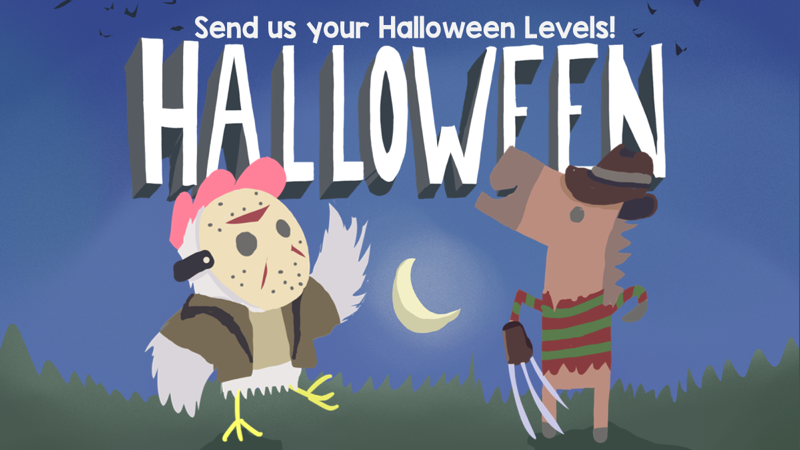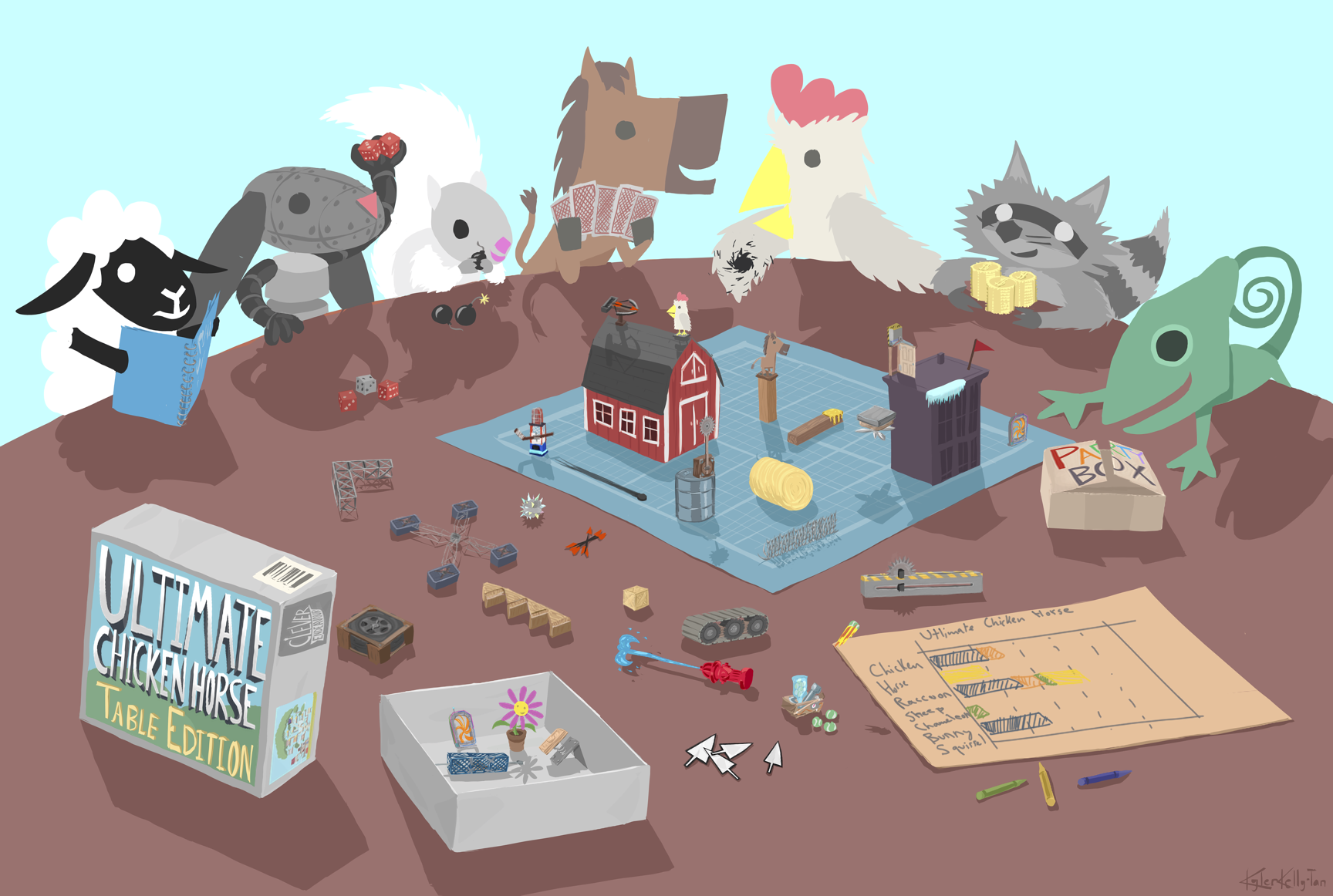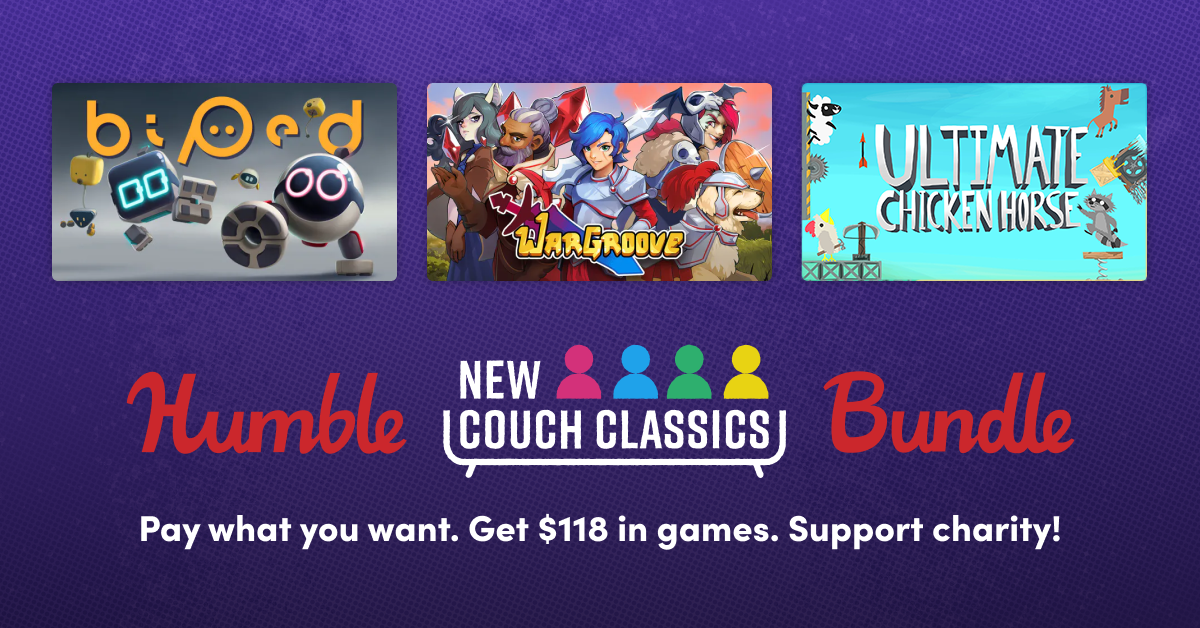We're Coming to Console with Expanded Free Play Mode!
/You may have seen this coming based on the fact that we've been talking about console development for a little while, but we can now proudly say that we're officially coming to console!
Check out the trailer below.
We won't announce a release date until we've gone through the full certification process and we know that everything works perfectly... right now stuff is still a little bit wonky.
We're also going to be adding a mega expansion to Free Play Mode, which involves using set pieces of different colours and permanently attached blocks to make crazy levels, as well as placing the start and end zones in the level. With this new set of tools, players can truly make their own Ultimate Chicken Horse levels that we hope will become as popular as the main ones in the game.
We're really excited to see what players come up with, and we look forward to being able to feature more levels in the game in future updates.


















